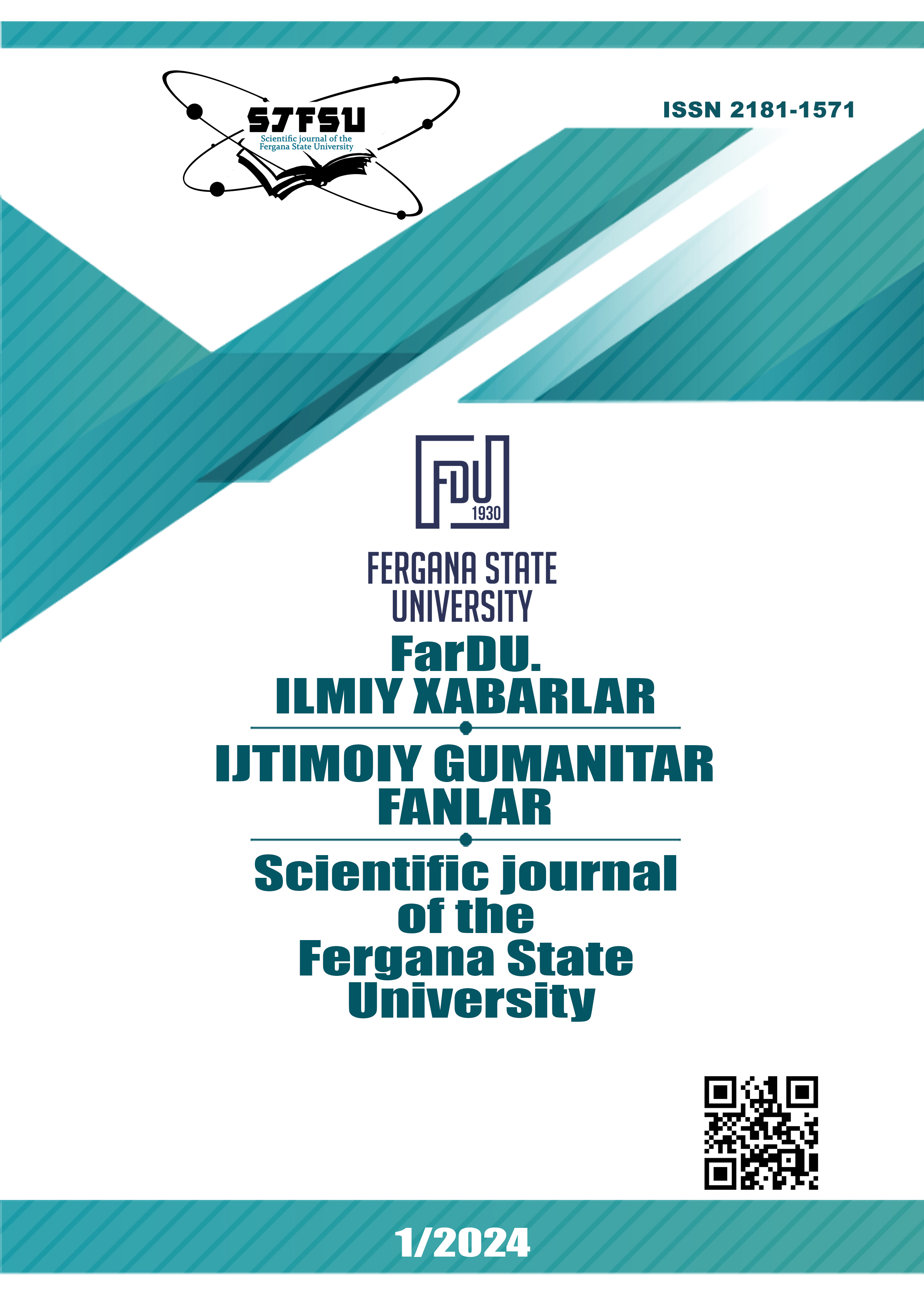SOME VIEWS ON THE SYSTEM OF AGRICULTURAL IRRIGATION IN UZBEKISTAN (1950S-1970S)
Keywords:
Uzbek SSR, irrigation system, cotton monopoly, Big Fergana Canal, reservoir, land reclamation, agriculture, protected lands.Abstract
In this article on the basis of archival materials and scientific literature the information on the state of the irrigation system, which was the basis of agriculture in the Uzbek SSR during the years of Soviet power, is presented. The article highlights the changes in the irrigation system related to the agrarian policy pursued by the Soviet authorities. In particular, the creation of the cotton monopoly led to further expansion of the irrigation system. Indeed, the acquisition of new land and the establishment of cotton fields led to the expansion of the irrigation system. As a result, new canals were built and old ones repaired in many regions of the country. Although water structures allowed the development of protected areas, these works also had negative consequences for the population of the republic. During the years of Soviet power, problems related to labour protection in industry were repeatedly raised. But this issue was not given due attention. The use of various chemical fertilisers to increase the yield of cotton in the republic had a negative impact on the health of the population. Due to this, various diseases spread among the population. Residents were forcibly involved in the construction and repair of irrigation facilities.
References
Alimova N. O‘zbekistonda ipakchilikning ahvoli va transformatsiya jarayoni. – T.: Dono, 2019,. – 120 bet.
Gidrouzel, gidrotexnika inshootlari uzeli – joylashishi va uyg‘unlikda ishlash sharoitlari bo‘yicha birlashgan gidrotexnika inshootlari guruhi.
Комилов A. Ўзбекистонда суғориш тизими, ривожланиши: ютуқ, муаммо ва оқибатлар. – Tошкент: Академнашр, 2016.
Насритдинов К. Фарғона водийсининг суғорилиш тарихи. – Т.: Янги аср авлоди, 2009;
Раззақов А. Ўзбекистон пахтачилиги тарихи. – Т.: Ўзбекистон, 1994.
ФВДА, 1151-жамғарма, 1-рўйхат, 105-йиғма жилд, 29-варақ.
Фозилов Ғ. Водийнинг олмос камари. – Фарғона: Фарғона, 1996. – 30 бет.
Downloads
Published
Issue
Section
License
Copyright (c) 2024 Scientific journal of the Fergana State University

This work is licensed under a Creative Commons Attribution-NonCommercial-NoDerivatives 4.0 International License.
How to Cite
Most read articles by the same author(s)
- , , TECHNOLOGICAL APPROACH IN IMPROVING THE METHODOLOGY OF GENDER CULTURE DEVELOPMENT OF FUTURE FOREIGN LANGUAGE TEACHERS , Scientific journal of the Fergana State University: No. 4 (2024): Scientific journal of the Fergana State University (Social humanities sciences)
- , THEORETICAL ASPECTS OF IMPROVING THE GENDER CULTURE DEVELOPMENT METHODOLOGY OF FUTURE FOREIGN LANGUAGE TEACHERS , Scientific journal of the Fergana State University: No. 4 (2024): FarDU.Ilmiy xabarlar jurnali (Aniq va tabiiy fanlar)

